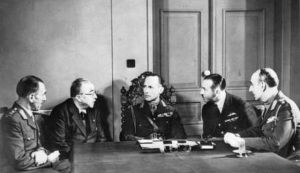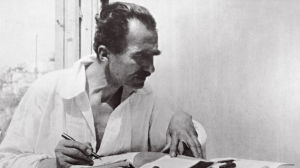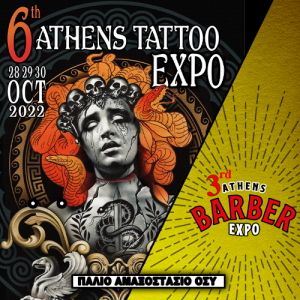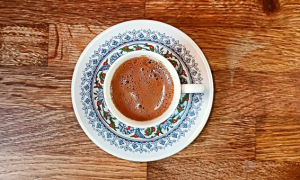ABOUT US
XpatAthens
Thursday, 26 October 2023 07:00
The Heroes Of The Ohi Day
October 28th is the day that commemorates the rejection by Greek dictator Ioannis Metaxas of the ultimatum made by Italian dictator Benito Mussolini on October 28, 1940. This day is known as Ohi Day by Greeks around the world.
Unlike the Greek War of Independence heroes that we are all familiar with, the heroes of the Greco-Italian War are lesser known. Of course, there are so many of them, and it is impossible to know them all. But let’s take a look at some Greeks who were called upon to make critical political or military decisions and made history.
Ioannis Metaxas


Ioannis Metaxas was a Greek military officer and politician who served as the Prime Minister of Greece from 1936 until his death in 1941. At first, Metaxas’ intention was to keep Greece out of World War II, a plan that failed when the Italian ambassador, Emanuele Grazzi, visited his residence demanding, on behalf of Italy, occupation rights to strategic Greek sites. His reply, “Alors, c'est la guerre," meaning “Then it is war," brought a united country into the Western alliance. In a strange twist of events, Metaxas never lived to see the Fascist-Nazi invasion of Greece because he died in Athens on January 29, 1941.
Alexandros Papagos


With the declaration of the Greco-Italian war, Alexandros Papagos assumed the position of Commander-in-Chief and managed to organize an effective defense and successfully halt the Italian troops along the Greco-Albanian borders. He remained in command until April 23, 1941, when he resigned in order not to participate in the negotiations following the German advance. In 1943, he established a resistance organization, the Military Hierarchy. In July of the same year, he was arrested by the German occupation authorities and transported to Germany's concentration camps as a prisoner. He was liberated by the Fifth U.S. Army on May 5, 1945.
Mordechai Frizis


When the Greco-Italian War was declared, Colonel Mordechai served as a detachment commander of the Delvinaki section of the Division. As the Italian army invaded Greece, crossing the Albanian frontier into Epirus, the task of defending the country’s border fell entirely to the VIII Division. Frizis and his men successfully pushed back the attacks, resulting in heavy losses for the Italians. On December 4th, he was ordered to move his unit towards the town of Përmet to cut off the Italian line of retreat, and the following day he was discovered dead from enemy fire. He was the first senior officer of the Greek Army to be killed in action on the battlefield in the Greco-Italian War.
Konstantinos Davakis


Konstantinos Davakis was a Greek military officer who, as the commander of the Pindus detachment, successfully repelled the Italian Julia Alpine Division's attack in October 1940. On November 1, 1940, when the reinforcements expected by Davakis arrived, the Greek forces counterattacked and surrounded the Italians, who were forced to retreat. On the 6th day after the start of the operations, Davakis was wounded and forced to withdraw from the front line position. He was arrested by the Italian occupation authorities in December 1942, suspected of participation in the Greek Resistance. He was to be shipped along with other officers to POW camps in Italy, but the ship was torpedoed and sank off southern Albania in January 1943.
Charalambos Katsimitros


As commander of the VIII division, Katsimitros successfully managed to hold back the Italian advance. He decided to organize forward defense and hold the Elaia (Kalpaki) position, despite opposite instructions from the General Staff and succeeded in defending it against repeated attacks until November 9. In this way, he managed to contain the Italian offensive in the Epirus sector and bought valuable time for the Greek reinforcements to arrive. After the German attack on Greece began, he retreated with the rest of the Army of Epirus, and the capitulation found him in Ioannina.
Published in
Greek Philosophy & History
Tagged under
Tuesday, 25 October 2022 07:00
Greece Ranks 6th As World’s Most Popular Destination For Weddings
Greece ranks 6th in the World’s Most Popular Places for Destination Weddings list, according to Google search data analysis recently published by money.co.uk, an online financial product comparison service.
By analyzing Google search data from the last 12 months for ‘wedding in + [destination]’ in nearly every country around the world, experts at money.co.uk discovered that Greece was the most googled wedding destination in Armenia, Brazil, England, Hungary, South Africa, and Wales.
The country ranked 3rd most popular destination to tie the knot in Europe and came in 5th place among South Americans wanting to get married.
The most popular country that the world is googling to get married in is India, as it takes the top spot for 38 countries around the globe including Australia, Canada, Mexico, and the US.
The second-most popular place for a wedding destination is Italy, with 28 countries choosing it as their top nuptial haven including France, Greece, and Sweden.
Wedding destinations sum up approximately $16 billion in annual spending of visitors according to Ampers and Travel while 2022 is set to be the biggest year for weddings since the 80s, the Wedding Academy International says.
To read this article in full, please visit: news.gtp.gr
By analyzing Google search data from the last 12 months for ‘wedding in + [destination]’ in nearly every country around the world, experts at money.co.uk discovered that Greece was the most googled wedding destination in Armenia, Brazil, England, Hungary, South Africa, and Wales.
The country ranked 3rd most popular destination to tie the knot in Europe and came in 5th place among South Americans wanting to get married.
The most popular country that the world is googling to get married in is India, as it takes the top spot for 38 countries around the globe including Australia, Canada, Mexico, and the US.
The second-most popular place for a wedding destination is Italy, with 28 countries choosing it as their top nuptial haven including France, Greece, and Sweden.
Wedding destinations sum up approximately $16 billion in annual spending of visitors according to Ampers and Travel while 2022 is set to be the biggest year for weddings since the 80s, the Wedding Academy International says.
To read this article in full, please visit: news.gtp.gr
Published in
Greece In The News
Tagged under
Monday, 24 October 2022 07:00
Greek Author Kazantzakis’s Last Novel Published 75 Years Later
The last remaining unpublished novel of Nikos Kazantzakis, the universally-celebrated author of “Zorba the Greek,” is out on October 26, 2022, sixty-five years post-mortem and seventy-five years since it was penned.
The novel, titled “Aniforos” (“Uphill”, in free translation), hit the bookstores in Greece by publishing house Dioptra, following a comprehensive publishing rights deal with Kazantzakis’s descendant, Niki Stavrou, who is the copyright owner of the author’s works and director of Kazantzakis Publications.
The manuscript had been kept at the Kazantzakis museum, in the author’s home village of Mirtia, just outside Heraklion, Crete, since its rediscovery.
Nine-time Nobel nominee
Nikos Kazantzakis is the most translated Greek contemporary author, and he is widely considered a giant of modern Greek literature.
A novelist, poet, playwright, journalist, philosopher, and politician, Kazantzakis was born and raised on Crete but traveled around the world and lived in several European cities, leading a truly cosmopolitan life.
His work includes novels, short stories, plays, travel logs, memoirs, and philosophical essays, written between 1906 and his death in 1957.
Kazantzakis was nominated for the Nobel Prize in Literature nine times, for a total of 14 different nominations. In the year of his passing, the Cretan author famously lost the prestigious prize to Albert Camus by one vote.
Kazantzakis’s last unpublished novel
“Aniforos” was his last novel, written right after his world-famous masterpiece “Zorba the Greek” (1946). He wrote it around the time that he departed for the UK on what was meant to be his last journey.
Brimming with autobiographical references, as the author reflects on the sad experience of World War II, which he endured firsthand, “Aniforos” is separated into three parts: Crete, England, and Loneliness.
Dioptra said in an earlier note that this work was Kazantzakis’s answer to the criticism he had received that the pain and destruction suffered by Greece during the German occupation was missing from “Zorba the Greek.”
To read this article in full, please visit: greekreporter.com
The novel, titled “Aniforos” (“Uphill”, in free translation), hit the bookstores in Greece by publishing house Dioptra, following a comprehensive publishing rights deal with Kazantzakis’s descendant, Niki Stavrou, who is the copyright owner of the author’s works and director of Kazantzakis Publications.
The manuscript had been kept at the Kazantzakis museum, in the author’s home village of Mirtia, just outside Heraklion, Crete, since its rediscovery.
Nine-time Nobel nominee
Nikos Kazantzakis is the most translated Greek contemporary author, and he is widely considered a giant of modern Greek literature.
A novelist, poet, playwright, journalist, philosopher, and politician, Kazantzakis was born and raised on Crete but traveled around the world and lived in several European cities, leading a truly cosmopolitan life.
His work includes novels, short stories, plays, travel logs, memoirs, and philosophical essays, written between 1906 and his death in 1957.
Kazantzakis was nominated for the Nobel Prize in Literature nine times, for a total of 14 different nominations. In the year of his passing, the Cretan author famously lost the prestigious prize to Albert Camus by one vote.
Kazantzakis’s last unpublished novel
“Aniforos” was his last novel, written right after his world-famous masterpiece “Zorba the Greek” (1946). He wrote it around the time that he departed for the UK on what was meant to be his last journey.
Brimming with autobiographical references, as the author reflects on the sad experience of World War II, which he endured firsthand, “Aniforos” is separated into three parts: Crete, England, and Loneliness.
Dioptra said in an earlier note that this work was Kazantzakis’s answer to the criticism he had received that the pain and destruction suffered by Greece during the German occupation was missing from “Zorba the Greek.”
To read this article in full, please visit: greekreporter.com
Published in
Greek Language & Culture
Tagged under
Monday, 17 October 2022 11:00
6th Athens Tattoo Expo & 3rd Athens Barber Expo
True to its established autumn appointment, the Athens Tattoo Expo returns for the 6th year.
A celebration of the art and culture of tattooing takes place this year at the Old Railway Station of the OSY in Gazi and becomes a pan-Hellenic meeting point for all those who love the art, aesthetics and culture of tattooing.
140 of the best Greek tattoo artists will gather for three days and demonstrate the high level of their work and their art.
Of course, like with any other self-respecting festival, the 6th Athens Tattoo Expo will have a rich program of parallel actions and events:
- Live Tattooing
- Tattoo Contests
- Dj sets
- Live Bands
- Art Exhibition Experiences
- Game Rooms
- Graffiti Show
- Body Painting Show Acrobatics.
And the program is ideally completed by the 3rd Barber Expo with 15 (fifteen) of the most famous barber shops in Athens actively participating in the event!
As part of the 6th Athens Tattoo Expo, the 3rd Greek barber show is presented for fans of barbering and men's grooming.
Fifteen of the city's best-known Barber Shops make their appointment at the three-day exhibition, which will be surrounded by competitions, as well as seminars by internationally renowned barbers.
It should be noted that once again the Athens Tattoo Expo shows its social sensitivity in practice by supporting from the first day of its creation
the action of the Make A Wish Organization, through the Star Your Body action, in which the visitor by making a Tattoo from selected star designs, strengthens the organization with 100% of the price.
A celebration of the art and culture of tattooing takes place this year at the Old Railway Station of the OSY in Gazi and becomes a pan-Hellenic meeting point for all those who love the art, aesthetics and culture of tattooing.
140 of the best Greek tattoo artists will gather for three days and demonstrate the high level of their work and their art.
Of course, like with any other self-respecting festival, the 6th Athens Tattoo Expo will have a rich program of parallel actions and events:
- Live Tattooing
- Tattoo Contests
- Dj sets
- Live Bands
- Art Exhibition Experiences
- Game Rooms
- Graffiti Show
- Body Painting Show Acrobatics.
And the program is ideally completed by the 3rd Barber Expo with 15 (fifteen) of the most famous barber shops in Athens actively participating in the event!
As part of the 6th Athens Tattoo Expo, the 3rd Greek barber show is presented for fans of barbering and men's grooming.
Fifteen of the city's best-known Barber Shops make their appointment at the three-day exhibition, which will be surrounded by competitions, as well as seminars by internationally renowned barbers.
It should be noted that once again the Athens Tattoo Expo shows its social sensitivity in practice by supporting from the first day of its creation
the action of the Make A Wish Organization, through the Star Your Body action, in which the visitor by making a Tattoo from selected star designs, strengthens the organization with 100% of the price.
Published in
Art
Tagged under
Monday, 17 October 2022 10:54
Athens Art Festival 2022
The Athens Art Festival is back!
After a year, the ultimate artistic festival opens its doors again on October 21, 22 and 23 at the Old OSY Train Station in Gazi.
Come and join us for a three-day art celebration where you will be able to wander between exhibitions of paintings - photography - visual arts and exhibitors' booths small and large.
Every day will be special with surprises, full of music and of course food and drink!
After a year, the ultimate artistic festival opens its doors again on October 21, 22 and 23 at the Old OSY Train Station in Gazi.
Come and join us for a three-day art celebration where you will be able to wander between exhibitions of paintings - photography - visual arts and exhibitors' booths small and large.
Every day will be special with surprises, full of music and of course food and drink!
Published in
Art
Tagged under
Friday, 13 September 2024 07:00
Top 5 Health Benefits Of Greek Coffee
Greek coffee is a strongly brewed coffee served with foam on top and grounds at the bottom of the cup. It is tremendously popular all over Greece, especially in the countryside, where you will most likely find the locals enjoying a sip or two at a local kafeneio.
Greek coffee is much more than just coffee; it is an integral part of the country’s culture. Greeks’ first acquaintance with coffee happened when the country was under Ottoman rule, and the first coffee shop opened around 1475. Since then, the Greeks’ bond with their coffee has been unbreakable!
Luckily for Greeks, it has been proven that Greek coffee has major health benefits. Let’s take a look at some of them, and we are sure that after reading this article, you will find yourselves holding a briki, getting ready to make a cup of ellinikos!
1. Greek Coffee Is High In Antioxidants
Like most coffees, Greek coffee is a potent source of healthy antioxidants. In fact, a double Greek contains about 90-130 mg of antioxidants. Among others, antioxidants prevent premature aging of the cells.
2. Greek Coffee Reduces The Risk Of Certain Diseases
According to a 2011 study, 1-2 cups of Greek coffee a day can reduce the risk of cardiovascular disease. Moreover, Greek coffee is rich in polyphenols, chlorogenic, and caffeic acid, meaning it can help prevent various types of cancer, including esophageal and liver cancer. Last but not least, it is associated with a lower risk of type 2 diabetes.
3. Greek Coffee Promotes Mental Well-Being
Drinking coffee, in general, can act as a shield against certain neurological diseases, such as Alzheimer's disease. Studies have also shown that coffee intake can reduce the risk of stroke, Parkinson's disease, and dementia. Based on research conducted on the inhabitants of Ikaria, drinking a cup of Greek coffee, in particular, contributes to fewer neurological dysfunctions and promotes longevity.
4. Greek Coffee Increases Metabolism
Drinking a cup of Greek coffee after a meal can activate your metabolism and improve your digestion. The caffeine it contains increases the intestine's motility, causing food to move through the gastrointestinal tract more quickly, hastening the digestion process.
5. Greek Coffee Contributes To Weight Loss
Greek coffee is traditionally enjoyed black, without the addition of sugar or milk, due to its rich flavor and texture. A cup of black Greek coffee has almost zero calories, making it perfectly suitable for those on diet. Also, its ingredients are poor in carbohydrates and fats.
Published in
Greek Food & Diet
Tagged under
Thursday, 20 October 2022 07:00
4 Of Our Favorite Bakeries In The City Center
Greece’s gastronomic culture is one of the most celebrated in the world and is a reason why millions of tourists visit the country every year. And, although most are eager to try feta, gyros, or tzatziki, the Greeks’ love for pastry and baked goods doesn’t go unnoticed by fellow travelers.
From village (choriatiko) bread to filo-based sweet and savory pastries like bougatsa or spanakopita and sponge cakes soaked in syrup like revani, Greece has a long history of baking that goes back to ancient times.
Here’s a small list of our favorite bakeries in the heart of Athens to get a taste of authentic Greek baked delicacies and kickstart your day most deliciously!
Tromero Paidi

@tromeropaidi

@tromeropaidi
This French-inspired artisan bakery and patisserie is housed in an old neoclassical house in Ilisia and features a combination of elegant aesthetics and high-quality products. There, you will find about 8–10 different varieties of bread every day, each baked on the spot using 100% Greek grains. Not to mention the delicious desserts, like lemon tarts and honey cakes, that you won’t be able to say no to!
Address: Papadiamantopoulou 30, Athina
Telephone: 210 777 7537
Betty’s Bakery


bettysbakery.gr
Located in Gazi, Betty’s Bakery is all about reviving real bread, as their motto goes. Whether you’re looking for handmade and organic bread or you're into fitness and super bread, there’s no other place to go. The bakery offers eleven different bread options, such as the carob and walnut loaf and the wheat loaf with thyme and olive oil, to mention but a few, each of which is mouthwatering and made from flour free of additives and preservatives.
Address: Kassandras 10, Athina
Telephone: 210 342 4832
Kora Bakery


@korabakery
Located in Kolonaki, Kora Bakery offers the highest quality of goods while respecting the environment and leaving a positive social footprint. The bread, made with Greek and Italian flours, is naturally kneaded and cured for about 20 hours, a process that helps it become tastier, more nutritious, and more digestible. Except for quality bread, the bakery also sells a creative and flavorsome range of pastries!
Address: Panagiotou Anagnostopoulou 44, Athina
Telephone: 210 362 7855
Takis Bakery

@fournostakis

@fournostakis
In the shadow of the Acropolis stands Takis Bakery, offering traditional bread and yummy pastries for three generations. More than 30 types of bread are baked daily, from dense sourdough to focaccias, crunchy baguettes to koulouri. You will also find delightful muffins, cookies, and pies, all made with quality ingredients.
Address: Misaraliotou 14, Athina
Telephone: 210 923 0052
Published in
City Discovery
Tagged under
Wednesday, 19 October 2022 14:21
Staying Alive With Katerina Vrana
Performed in English for the first time ever!
In April 2017, Katerina Vrana, one of Greece’s top stand-up comedians, was on tour in Malaysia. On the third city of the tour, she fell severely ill and was hospitalised. The situation ended up being far more serious than first suspected, and she was put into a coma in order to save her life. *spoiler alert* Katerina survived!
After two months in the hospital in Malaysia, she returned to Greece, where she was hospitalized for a further three months. Since September 2017, Katerina has been recovering slowly but steadily. She still faces issues with her mobility, balance, eyesight and speech
All of this is used as material in her stand-up comedy show “Staying Alive (I nearly died, you know)”. With her unique sense of humor, the beloved stand-up comedian manages to transform her near-death experience into to a show full of optimism, laughter and love for life.
The show was first performed in Greek, in Athens, in 2019 where it sold out all of its dates before even opening.
Katerina Vrana performs stand-up comedy in both Greek and English all over the world. Her shows have sold out in Athens, London and at the Edinburgh Fringe and Melbourne comedy festivals. CNN has included her in its list of “Female Comedians you must see”. In December 2016 she came third in Laugh Factory’s international competition “Funniest Person in the World” which was aimed at countries which do not have a tradition in stand-up comedy. In April 2017, while on tour in Malaysia, she fell seriously ill and nearly died. Her show "Staying Alive (I Nearly Died, You Know)" in 2019, about her illness and recovery, sold out before it even started its run. It remains the fastest-selling, most successful solo stand-up comedy show in Greece to this day. In 2021-22 she starred as Florence Foster Jenkins in Peter Quilter’s theatre play “Glorious”, garnering rave reviews.
Katerina spends most of her time between shows and rehabilitation as she still faces issues with her movement, eyesight and speech.
Published in
Community
Tagged under
Wednesday, 19 October 2022 10:26
Urhuette: Beginning With Basics. What Is Architecture?
An architectural installation for kids 9-14 years old
The notion of the Primitive Hut - “Urhütte” in German – runs as a concept through the history of modern architectural theory. It was used in order to refocus the discipline in moments of crisis and to remind architects of their humble beginnings. The aesthetic and technological immediacy of the Primitive Hut, real or imagined, served for example as a means to criticize architectural practices from ecological, social, and economical perspectives. Both powerful and simple in its imagery, this concept is very well understood and received by children. By learning about the parable-like theory of the Primitive Hut and by experiencing the construction of simple spaces with different techniques, children are equipped with first-hand knowledge of both the practical and the theoretical basics of architecture. At the same time, the work on the Hut promotes collaboration, critical testing, and environmental awareness of all kinds.
In the exhibition children will directly experience the story of the Hut: There is the grass of a riverbank to engage in knotting, weaving and the world of fabrics; there is a forest for visitors to explore the marvels of woodworking; and there is a cave to get immersed in all things stony, bricks and mortar. In the middle of the scenery, a veritable garden of architectural knowledge, there is a site where new huts are being planned according to scale and measurement, constructed and assembled collectively. Material science, spatial memory, social skills are all playfully exercised in order to once again set the architectural world in motion for the better future we all urgently need. Practice and theoretical questions happily merge when children are encouraged to rethink architecture in its simplest but ultimately most complex relationships.
Workshops for schools will take place every workday. On Saturday and Sunday workshops for kids and their parents will take place. The installation is on view for the general public, when no workshops take place, from 10 am to 6 pm every day except Saturdays.
Published in
Kids
Tagged under
Tuesday, 18 October 2022 07:00
Greece’s New Tourism Campaign: Wanna Feel 20 Again?
The Greek National Tourism Organization (GNTO) aims to smack two flies with one poster: attract retirees and prolong the tourist season.
As part of a 20-million-euro campaign to advertise Greece abroad, starting next week, posters with an older couple cheekily feeding each other watermelon and enjoying wine onboard a yacht, featuring the question “Wanna feel 20 again?” will appear in several European capitals.
It’s not just a reference to feeling young again; it’s referring to temperature. The idea of promoting Greece to retirees is part of the country’s plan for prolonging its tourist season, inspired by the current energy crisis. It’s based on the idea that hotels stay open and host northern Europeans who might be motivated by the much lower heating costs in the mild climate, as well as the lower cost of living in general. Below the question on the poster is the explanation: “With warm winter temperatures up to 20°C, Greece is the place to be.”
Speaking to the Guardian’s Observer, Greek tourism minister Vasilis Kikilias described part of the plan, saying that “there will be clusters connected by direct flights with hotels and restaurants that are prepared to stay open,” and explaining that “it might be less costly to turn off the heat back home and come here.”
Over the last month, the magazine also noted, the minister has visited Paris, Berlin, Vienna, and Stockholm, talking with pension fund managers, tour operators, and airlines, and spreading the word that Greece is “open” year-round. Among the Greek destinations to be promoted are Athens, Thessaloniki, Rhodes, Kos, and Crete – places with good medical care.
Worth noting is that while the new GNTO campaign aims to reap some momentum from the energy crisis, northern European retirees have long shown interest in Greece. In January, German newspaper Handelsblatt reported that more and more German retirees were looking to move abroad, and called Greece the “Florida of Europe.” Meanwhile, Swedish retirement homes have been taking elders on trips to Greece for over a decade. Previous attempts by the Greek government to bring retirees to Greece permanently have included generous tax incentives.
To read this article in full, please visit: greece-is.com
As part of a 20-million-euro campaign to advertise Greece abroad, starting next week, posters with an older couple cheekily feeding each other watermelon and enjoying wine onboard a yacht, featuring the question “Wanna feel 20 again?” will appear in several European capitals.
It’s not just a reference to feeling young again; it’s referring to temperature. The idea of promoting Greece to retirees is part of the country’s plan for prolonging its tourist season, inspired by the current energy crisis. It’s based on the idea that hotels stay open and host northern Europeans who might be motivated by the much lower heating costs in the mild climate, as well as the lower cost of living in general. Below the question on the poster is the explanation: “With warm winter temperatures up to 20°C, Greece is the place to be.”
Speaking to the Guardian’s Observer, Greek tourism minister Vasilis Kikilias described part of the plan, saying that “there will be clusters connected by direct flights with hotels and restaurants that are prepared to stay open,” and explaining that “it might be less costly to turn off the heat back home and come here.”
Over the last month, the magazine also noted, the minister has visited Paris, Berlin, Vienna, and Stockholm, talking with pension fund managers, tour operators, and airlines, and spreading the word that Greece is “open” year-round. Among the Greek destinations to be promoted are Athens, Thessaloniki, Rhodes, Kos, and Crete – places with good medical care.
Worth noting is that while the new GNTO campaign aims to reap some momentum from the energy crisis, northern European retirees have long shown interest in Greece. In January, German newspaper Handelsblatt reported that more and more German retirees were looking to move abroad, and called Greece the “Florida of Europe.” Meanwhile, Swedish retirement homes have been taking elders on trips to Greece for over a decade. Previous attempts by the Greek government to bring retirees to Greece permanently have included generous tax incentives.
To read this article in full, please visit: greece-is.com
Published in
Greece In The News
Tagged under










